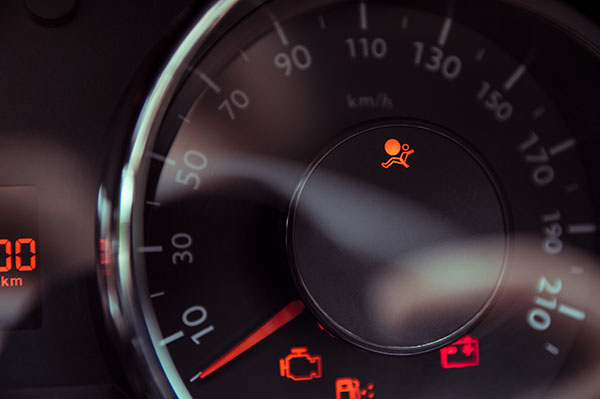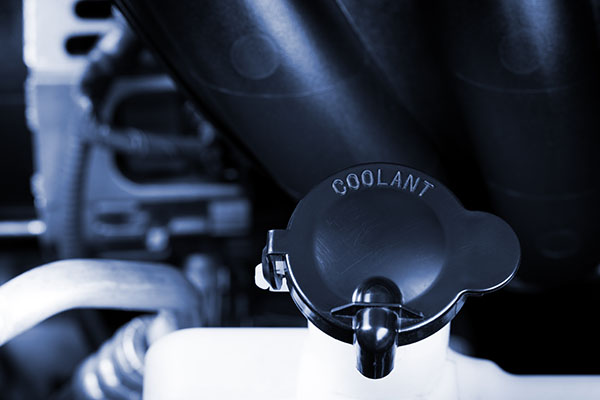Posted on 2/27/2024
.jpeg)
Modern vehicles are equipped with air conditioning and heating systems, which maintain a comfortable temperature inside the car regardless of the weather outside. You simply flip a switch and press a button, and the air starts warming or cooling the air. While this is more than convenient, have you ever wondered how it all works? The Basics of Automotive Air Conditioning The car's air conditioning system operates on the principles of refrigeration. At its center is the refrigeration cycle, which cools and dehumidifies the cabin air. The compressor compresses the refrigerant gas, raising its temperature and pressure. The high-pressure gas then moves to the condenser, where it releases heat and condenses into a high-pressure liquid. Liquid then passes through the expansion valve, whic ... read more
Posted on 1/30/2024

Diesel engines are renowned for their efficiency and unmatched longevity. However, to maintain these qualities, it's essential to use the right maintenance practices. Diesel fuel additives are not just an option - they're a necessity for anyone looking to optimize their engine's performance and lifespan. What Are Diesel Fuel Additives Diesel fuel additives are chemical compounds designed to improve the quality and efficiency of diesel fuel. They serve various purposes, from enhancing fuel combustion to protecting engine components. There are several types of additives, each addressing specific aspects of diesel fuel performance and engine maintenance. Why Are They Important for A Diesel Engine Additives play a pivotal role in maintaining and enhancing the performance of die ... read more
Posted on 12/5/2023

The glowing presence of the airbag light on your vehicle's dashboard is more than just a visual cue—it's a crucial signal regarding the health of your safety system. At TC Auto Service, we recognize the importance of unraveling these signals. Understanding the Airbag Light Your vehicle's airbag light serves as a warning, indicating a potential issue within the supplemental restraint system. This system encompasses not only the airbags themselves but also various components like the airbag module, impact sensors, and the intricate network of wiring that connects them. When the airbag light is illuminated, it signals that there might be a malfunction or irregularity that requires investigation. Potential Causes of the Airbag Light Illumination Several factors can trigger the airbag light. A disconnected or fau ... read more
Posted on 11/30/2023

Have you ever found yourself at the auto shop or flipping through an owner's manual, feeling completely bewildered by the variety of car fluids mentioned? You're not alone. Vehicle maintenance can often feel like a complex puzzle, and each fluid is a unique piece that ensures your car runs smoothly and efficiently. Understanding these vital liquids is like knowing the secret language of your vehicle, allowing you to care for it better and potentially save you from costly repairs down the road. Engine Oil Imagine your engine's moving parts grinding against each other without mercy – sounds horrifying, right? Well, that's where engine oil comes to the rescue. It lubricates these components to minimize friction, ensuring they glide together seamlessly rather than screeching in protest. It also helps cool down the engine, keeping those temperatures in check. Remember to change it as recommended because old oil can turn into an engine's wo ... read more
Posted on 10/31/2023

As a car owner, you might have come across varying opinions on how often to change your car's oil. It's worth considering that changing it too often may not necessarily be the best thing for your car. While it's essential to take good care of your vehicle, excessive oil changes can lead to unnecessary costs and environmental harm. Therefore, it's crucial to strike a balance and make informed decisions on when to change your car's oil. Understanding Oil's Role Before diving into the debate, it's crucial to grasp the fundamental role of oil in your car's engine. Engine oil serves as a lubricant, reducing friction between moving parts and preventing excessive wear and tear. It also helps to cool the engine and remove impurities and debris, ensuring a smooth and efficient performance. However, over time, oil degrades, losing its lubricating properties and becoming less effective ... read more